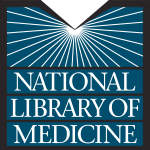- Industri: Library & information science
- Number of terms: 152252
- Number of blossaries: 0
- Company Profile:
The National Library of Medicine (NLM), on the campus of the National Institutes of Health in Bethesda, Maryland, is the world's largest medical library. The Library collects materials and provides information and research services in all areas of biomedicine and health care.
A method for diagnosis of fetal diseases by sampling the cells of the placental chorionic villi for DNA analysis, presence of bacteria, concentration of metabolites, etc. The advantage over amniocentesis is that the procedure can be carried out in the first trimester.
Industry:Medical
A scientifically controlled study of the safety and effectiveness of a therapeutic agent (as a drug or vaccine) using consenting human subjects.
Industry:Medical
The individual (not necessarily affected) who presents for genetic counseling and through whom a family with an inherited disorder comes to medical attention.
Industry:Medical
1) The regular recurrence, in cycles of about 24 hours, of biological processes or activities, such as sensitivity to drugs and stimuli, hormone secretion, sleeping, feeding, etc. This rhythm seems to be set by a 'biological clock' which seems to be set by recurring daylight and darkness.
2) Rhythmic recurrences of certain phenomena in living organisms occurring at about the same time of day, i.e., on a 24 hour cycle.
Industry:Medical
Sequence of DNA consisting of a series of nucleotide bases (code) giving rise to the mature messenger RNA that will be translated into the specific amino acids of the protein product.
Industry:Medical
1) Something that introduces usually unexpected difficulties, problems, or changes.
2) A secondary disease or condition that develops in the course of a primary disease or condition and arises either as a result of it or from independent causes.
Industry:Medical
1) Term which indicates that an individual who is heterozygous at two neighboring loci has the two mutations in question on the same chromosome.
3) Characterized by having certain atoms or groups of atoms on the same side of the longitudinal axis of a double bond or of the plane of a ring in a molecule.
3) Relating to or being an arrangement of two very closely linked genes in the heterozygous condition in which both mutant alleles are on one chromosome and both wild-type alleles are on the homologous chromosome.
Industry:Medical
The occurrence in an individual of two or more cell populations of different chromosomal constitutions, derived from different individuals. This contrasts with mosaicism in which the different cell populations are derived from a single individual.
Industry:Medical
A nonsecretory tubule that receives urine from several nephrons and discharges it into the pelvis of the kidney—called also collecting duct.
Industry:Medical
10 Involves lesions of the external and middle ear resulting in malconduction of airborne sound.
2) Hearing loss due to interference with the mechanical reception or amplification of sound to the cochlea. The interference is in the outer or middle ear involving the ear canal; tympanic membrane; or ear ossicles (otosclerosis. )
Industry:Medical
